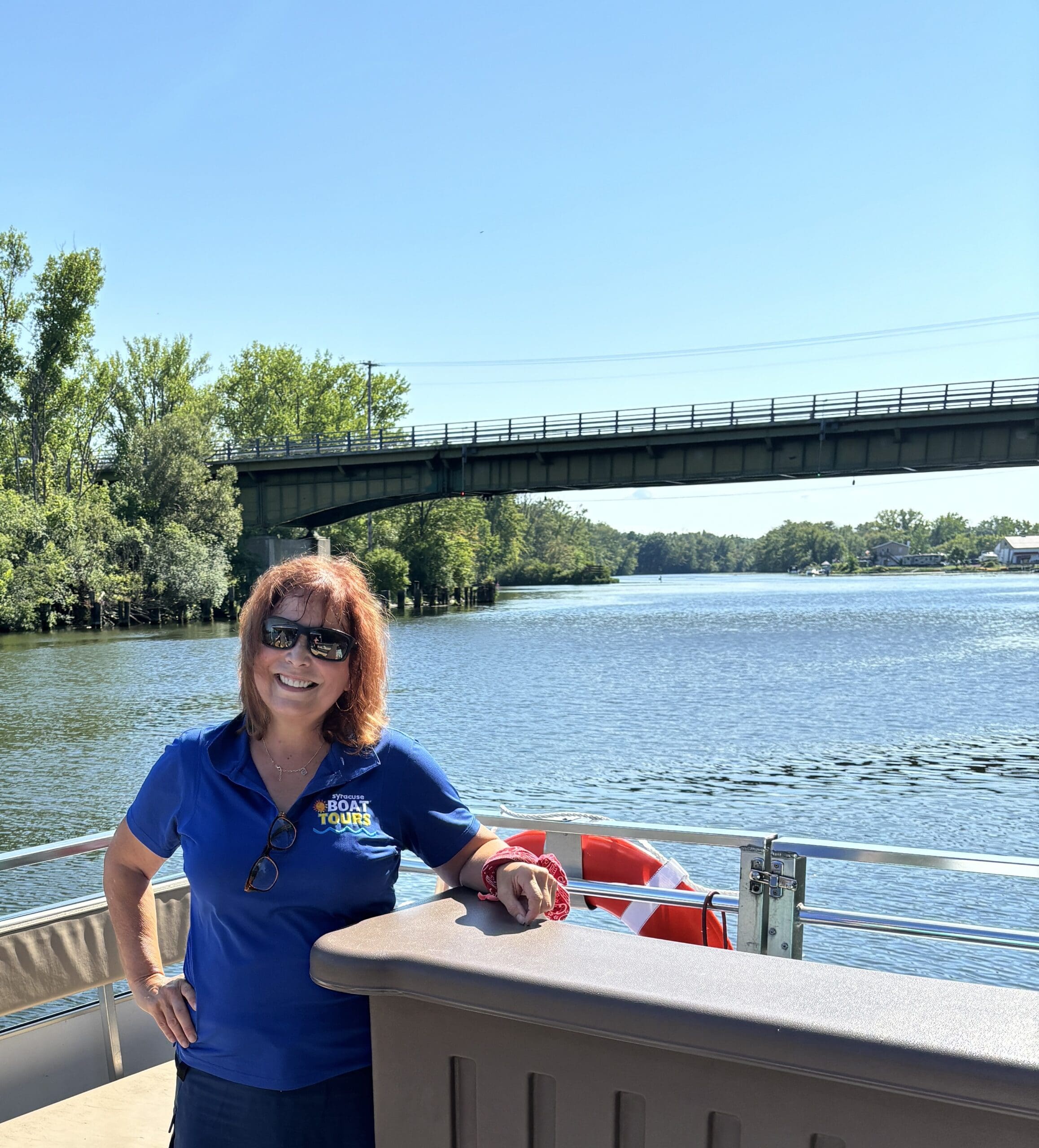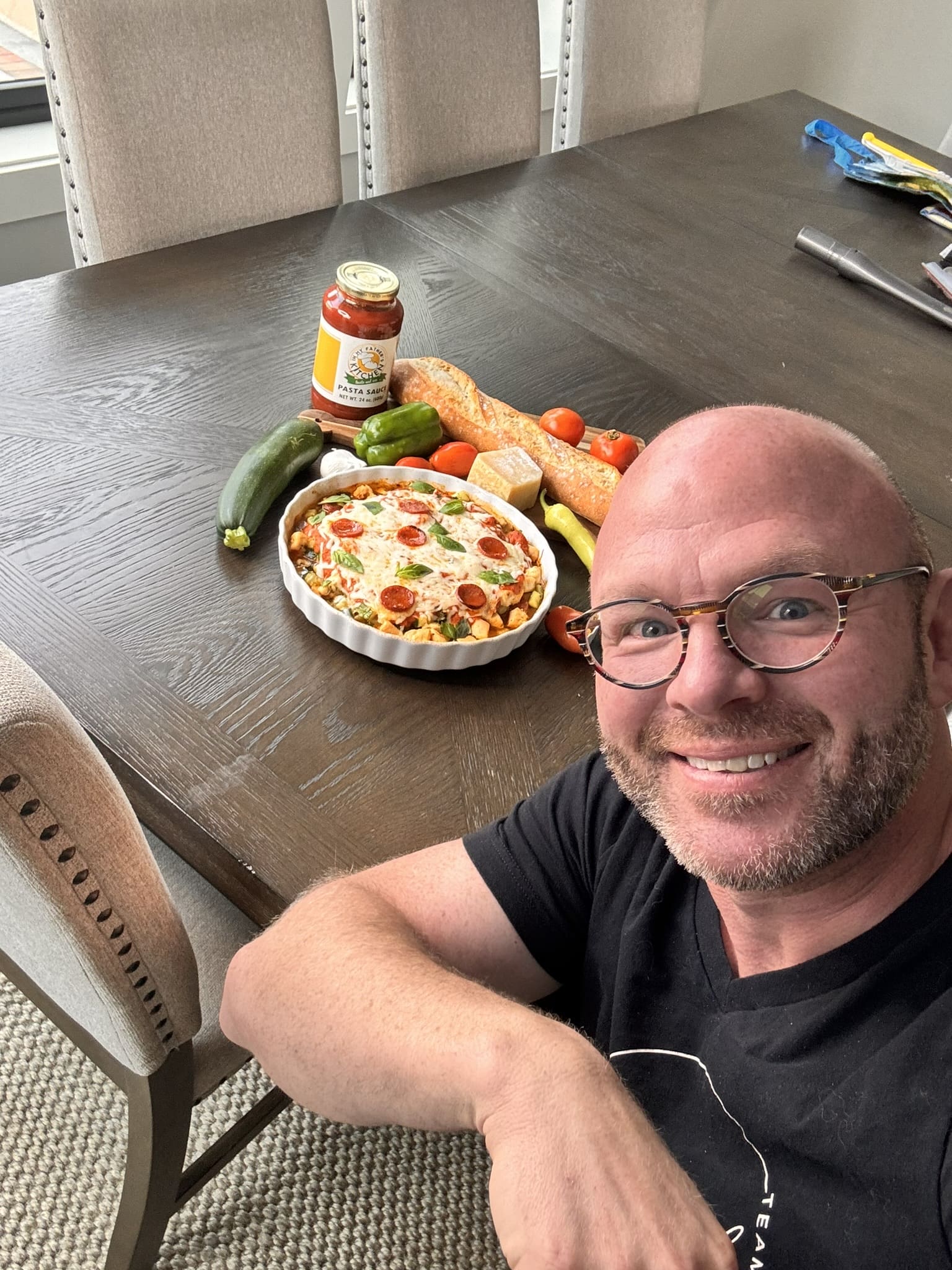The Building Blocks of Community
By Lorna Oppedisano | Photography by Paul Carmen Viggiano
Sheena Solomon, director of neighborhood initiatives at the Gifford Foundation, began to demonstrate the skills of a leader at a young age. When she was 16 years old, she had her first child. The experience encouraged her to complete high school and set an example for her son, so he would never have a reason not to graduate, she said.
“It was challenging,” Sheena said, “but my goal was really to beat the stereotypes of being a teenage mom and be more than what people expected me to be.”
Soon after high school, Sheena moved from Ithaca to Syracuse, where she attended Bryant & Stratton College and eventually began her career in area nonprofit organizations. The experience acquainted her with the inner workings of nonprofits, including funding, finances and staffing.
In 2007, Sheena learned the Gifford Foundation had an opening for a program associate. She applied for the job and was hired by Kathy Goldfarb-Findling, the organization’s executive director at the time and Sheena’s No. 1 professional inspiration.
Kathy had been interested in Sheena’s community impact, Sheena remembered. Through her career, Sheena had become familiar with the neighborhood the Gifford Foundation was serving at the time, Syracuse’s South Side. She knew how to be a listener and cared about the people.
Now, 11 years later, Sheena still utilizes those skills as director of neighborhood initiatives.
Her work at the foundation is full-circle grant making, Sheena said. Not only does she read grant proposals, but she also works with the grant applicants to help them create the best possible application and stays in touch with the residents served by the funded projects.
“That’s what really makes our community work as the mechanism it is,” she said. “So, that piece is really important: actually talking to people, finding out if the programs that we’re supporting are working.”
Residents themselves have the opportunity to work directly with the foundation through the “What if…” mini grant program, an initiative Sheena helped make a reality.
The largest barrier to smaller community-centric projects — like the creation of a dance class or community garden — is typically finances, Sheena explained. So, she suggested that the foundation create mini grants.
While the foundation typically works with two Syracuse neighborhoods — the West Side and the South Side — the “What if…” grants are awarded for projects with a total budget of $5,000 or less within the city limits. Orientations are held once a month to inform interested community members about the opportunities. Grant proposals are accepted several times a year.
Sheena designed the application process so her daughter, who was 12 years old at the time, could fill one out.
“It’s really about accessibility because that’s the issue — accessibility and opportunity,” she said. “If people don’t have opportunities and they don’t have accessibility to those opportunities, then they feel no hope. It’s taking all the barriers possible out of the way.”
A few years after she helped implement the mini grant series in 2011, Sheena helped develop another Gifford Foundation program: Nourishing Tomorrow’s Leaders.
While reading grant proposals, Sheena noticed a trend in lack of diversity on nonprofit boards. The groups didn’t reflect the community they served, she explained.
“How are you making decisions for your constituents when they’re not represented at decision-making tables?” she thought.
So, the Gifford Foundation worked with the Central New York Community Foundation, Leadership Greater Syracuse, the Human Services Leadership Council and City of Syracuse residents to develop Nourishing Tomorrow’s Leaders. It began as a board development initiative but eventually evolved to be more about leadership, Sheena said.
Now, 30 people participate in the program each year, learning skills like board responsibilities, how to ask questions and truly be involved with board leadership and how to deal with being the minority on a board.
Having diversity in a group of decision makers is what makes a board successful, Sheena said, adding that diversity extends beyond race and gender to factors like age, geography and ability.
“Just having that type of diversity around the table helps make effective and impactful decision making,” she said.
Sheena currently serves on several boards herself, donating her time and insight to You Can’t Fail Inc., the Syracuse Economic Development Corp., The Near Westside Initiative and the PLACES advisory board.
Though she stays busy with work and volunteer involvement, she also makes sure to prioritize time for her three children. She hopes to instill in them the same appreciation for paying it forward she possesses.
In everything she does, the people she collaborates with inspire her. She definitely does not do it alone, she said.
“It definitely takes a team. It’s not just me,” she said. “I’m totally a collaborator/partner/team player. Nothing that I do is by myself.” SWM
Special thanks to Tiffany Nickens for Sheena’s hair and makeup styling.





